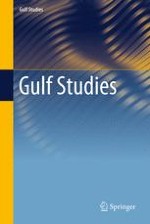2020 | Book Series

Gulf Studies
7 Volumes | 2020 - 2023
This book series, indexed in Scopus, serves the growing scholarly interest in the dynamic, complex, and strategically important Arab Gulf region by offering an academic publication platform to scholars in the region and beyond. The series takes an interdisciplinary approach to documenting the changes occurring in Gulf societies. It aims to advance the understanding of Gulf societies and their interactions with the rest of the world from a non-Western perspective. The series explicitly gives scholars from the Arab Gulf region more voice and visibility in academic publications. It includes studies of the member states of the Gulf Cooperation Council (GCC), namely: Bahrain, Kuwait, Oman, Qatar, Saudi Arabia, and the United Arab Emirates, as well as Iran, Iraq, and Yemen. It accepts proposals for research monographs, edited volumes, and handbooks that explain how the Gulf societies’ social, economic, and political landscapes have evolved over the past few decades. The series covers a wide range of topics within four broad themes, as follows:
(1) Social and Cultural Issues in the Gulf: Demography, migration, citizenship, gender, culture and identity, urbanization, education, new media, unemployment, youth, family, women empowerment, leadership, aging, human rights, sports, Islamic ethics, and Islam and society
(2) Politics and Security in the Gulf: Gulf defence and security, the GCC integration, Gulf politics and political systems, and the GCC’s foreign policy
(3) Energy and Economics in the Gulf: The political economy of the Gulf, economic diversification, international investments, international trade, knowledge economy, energy security and geopolitics of energy, renewable energy development, environmental regulations, urban planning, and Islamic finance
(4) The GCC States and the World: The GCC and Iran, the GCC and Africa, the GCC and South Asia, the GCC and China, the GCC and East Asia, the GCC and Southeast Asia, and the GCC and Western powers.
Submission and Peer Review
All proposals will undergo peer review by the editorial board members. If accepted, the final manuscript will be peer reviewed internally by the editorial board as well as externally (single/double blind) by Springer ahead of acceptance and publication. Please submit your book proposal to the Series Editor, Md Mizanur Rahman: mizan@qu.edu.qa, and to Springer Publishing Editor, Alex Westcott Campbell: alexandra.campbell@springernature.com
Md Mizanur Rahman, Gulf Studies Program and Center, College of Arts and Sciences, Qatar University, Doha, Qatar
Editorial Board
Aftab Kamal Pasha, Jawaharlal Nehru University, New Delhi, India
Ahmed Ibrahim Abushouk, Qatar University, Doha, Qatar
AKM Ahsan Ullah, Universiti Brunei Darussalam, Gadong, Brunei Darussalam
Andrew Gardner, University of Puget Sound, Tacoma, USA
Anis B. Brik, Hamad Bin Khalifa University, Doha, Qatar
Bakeel Al-Zandani, Qatar University, Doha, Qatar
Eloísa Martín, United Arab Emirates University, Abu Dhabi, United Arab Emirates
Hussein Solomon, University of the Free State, Bloemfontein, South Africa
Kristian Coates Ulrichsen, Rice University, Houston, USA
Logan Cochrane, Hamad Bin Khalifa University, Doha, Qatar
Mahjoob Zweiri, Qatar University, Doha, Qatar
Mark C. Thompson, King Faisal Center for Research and Islamic Studies, Riyadh, Saudi Arabia
Martin Hvidt, University of Southern Denmark, Odense, Denmark
Mehran Kamrava, Georgetown University, Doha, Qatar
Neil Quilliam, Chatham House, London, United Kingdom
Rizwan Ahmad, Qatar University, Doha, Qatar
Samir Ibrahim Hassan, Sultan Qaboos University, Muscat, Oman
Sari Hanafi, American University of Beirut, Beirut, Lebanon
Shahjahan Bhuiyan, American University in Cairo, Cairo, Egypt
Shareefa Al-Adwani, American University of Kuwait, Kuwait City, Kuwait
Syed Farid Alatas, National University of Singapore, Singapore, Singapore